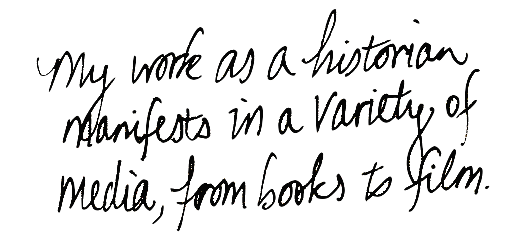
A significant part of story telling is retelling true stories. From news articles and headlines to ballads and epics, the tone of conveying history is vast from generation to generation.
Webster’s New World 3rd College Edition
drama: greek roots/1. a literary composition that tells a story, usually of human conflict, by means of dialogue and action, to be performed by actors; /2. the art or profession of writing, acting or producing plays.dramatize: to make into a drama; adapt (a story, events, etc.) for performance on the stage, in a movie, etc.
1828 Webster’s Dictionary
DRAMA: [Gr. δραμα, from δραω, to make] A poem or composition representing a picture of human life, and accomodated to action.
DRAMATIZE: To compose in the form of the drama; or to give to a composition the form of a play. At Riga in 1204 was acted a prophetic play, that is, a dramatized extract from the history of the Old and New Testaments. Tooke’s Russia.
The stage and screen have a way of presenting history to a wide audience – the young, the old, the illiterate and the inarticulate. Of course, a medium so effective for communication is, like the internet, excessively flawed in many ways. Freedom of speech is often abused, morality mutilated and “artistry” sickening.
Many proper Christians throughout time have decided that avoiding such a potentially tentative industry would make things better. Unfortunately, with few believers actively protecting and improving the field, it is now largely governed by an elite and wealthy group of people that abide by a liberal code with a vengeance. No, there is no need for generalizations and stereotypes, but the facts are cold and hard. Non-discerning people produce material that becomes a hit thanks to a non-discerning audience. The vicious cycle continues, and everyone in the industry begins a limbo challenge: how low can you go before the audience simply can’t bear to watch it anymore?
I heard that not too long ago some atheists stated that “Christians aren’t very creative”. Us? The ones that read the History Book of the Universe? The ones that understand the awesome story of creation, corruption and redemption better than anyone else? The ones that see history as CHRIST’s excellent plot – more intricate and beautiful than anything a novelist can conceive of?
These past two years I worked on writing a historical screenplay, and during that time I learned a lot about not only history, but the artistry of telling it. I would like to share what I learned and perhaps make that the main theme of my blog.
Dramatizing history can cover a wide range of topics and styles. Sometimes it covers historical events with fictional characters (historical fiction), and other times is actually covers historical characters and historical events. The latter is often more challenging because it requires you to harness your creativity within a pre-set plot. The fun in it is that it is similar to an artist painting from reality and a photographer taking and enhancing a photo – the writer gets to show the audience his or her perspective of the whole picture and enhance the shades and details of the story that they find fascinating.
 By the way, the Christian authors are – or should be – the best. They are the people that see important meaning and themes of history and understand why it is worth remembering. If you think they aren’t creative, it is because there are too few of them in comparison to the non-believers that have taken over the professional story telling industry. Those people have, as Geoff Botkin said, worked extremely hard to get to where they are while many Christians have been lazy and thus surrendered the creative industry to them. Furthermore, the devil has been around long enough to make up some pretty convincing stories himself – and he wants to retell history in a way that glorifies him rather than the CREATOR.
By the way, the Christian authors are – or should be – the best. They are the people that see important meaning and themes of history and understand why it is worth remembering. If you think they aren’t creative, it is because there are too few of them in comparison to the non-believers that have taken over the professional story telling industry. Those people have, as Geoff Botkin said, worked extremely hard to get to where they are while many Christians have been lazy and thus surrendered the creative industry to them. Furthermore, the devil has been around long enough to make up some pretty convincing stories himself – and he wants to retell history in a way that glorifies him rather than the CREATOR.
The painting in the banner is of a scene from Shakespeare’s Hamlet. It is the scene in which his uncle, the king, is convicted of his sin while watching a play that Hamlet produced about a character who acts like the king himself. That is where Hamlet’s line, “The play’s the thing – wherein I’ll catch the conscience of the king” comes from. It reminds me of the time Nathan told a convicting parable to King David (2 Samuel 12) – but King Claudius was not nearly as repentant (a la King Saul). I’ve read that even Hamlet is supposedly based on an actual historical character.
Well, I’ll begin my research, analysis and writing and see what comes of it.
















Hi!
Your posts are always thought-provoking, and obviously have a lot of thought put into them, and I really appriciate that. It inspires me to do better in everything that I am working on.
I am excited for you about your screenplay, and I sincerely hope that it goes somewhere.
Have a very bright, very cheerful day!
Miss Eyebright
RYC: I’m going to be posting on voting soon. I’ve just got to write something up.
That would explain McCain, I still think constitutional could have solved the whole issue.
The picture is actually two pictures together, both from google images.
Eric
As a History major and Theater minor at UCLA. I wholly agree.
in fact if you ever want to work on something together in the future please let me know. 🙂
http://www.firstthings.com/article.php3?id_article=282
really good article!!!
excerpt:
“The challenge of the Christian historian is to search within the wisdom of the ages for some indication of the eternal wisdom of God. It is to try to seek God’s revelation and judgment over time without presuming the power of divine judgment. It is to try to discern God’s justice within God’s joust.”
actually this is the best excerpt:
“The story of the Dresden church is a metaphor of life. Construction, destruction, and reconstruction. Work, judgment, and purgation. Birth, death, and resurrection. Creation, fall, and redemption. These are the stages of life. These are the passages of faith. The old must pass away so that the new may come forth. We must die so that we can be reborn. Our bodies must be buried so that they can be resurrected. Our works must be burned so that they can be purified. Our bonds must be broken so that we can be reconciled. This is the nature of biblical religion. It gives life its power. It gives pain its purpose. It gives time its pattern.”
1 more! It’s the best defense of treating “history as drama”/ “history as literature” I’ve read yet! The address was delivered by none other than President Theodore Roosevelt. The only drawbacks are that he seems to believe in evolution and shows an appreciation for Darwin…and he doesn’t mention the centrality of Christ in history. He mentions Old Testament prophets and references the Bible in other ways…
http://www.bartleby.com/56/1.html
“It is a shallow criticism to assert that imagination tends to inaccuracy. Only a distorted imagination tends to inaccuracy. Vast and fundamental truths can be discerned and interpreted only by one whose imagination is as lofty as the soul of a Hebrew prophet. When we say that the great historian must be a man of imagination, we use the word as we use it when we say that the great statesman must be a man of imagination. Moreover, together with imagination must go the power of expression. The great speeches of statesmen and the great writings of historians can live only if they possess the deathless quality that inheres in all great literature. ”
“He must use the instruments which the historians of the past did not have ready to hand. Yet even with these instruments he can not do as good work as the best of the elder historians unless he has vision and imagination, the power to grasp what is essential and to reject the infinitely more numerous non-essentials, the power to embody ghosts, to put flesh and blood on dry bones, to make dead men living before our eyes.”
“In the writings of our historians, as in the lives of our ordinary citizens, we can neither afford to forget that it is the ordinary every-day life which counts most; nor yet that seasons come when ordinary qualities count for but little in the face of great contending forces of good and of evil, the outcome of whose strife determines whether the nation shall walk in the glory of the morning or in the gloom of spiritual death.”
Thanks for these great quotes and resources! I’m so excited about studying dramatizing history!
I’m registered for a drama class this coming college semester. I’m also making progress with my script revision which I hope to have completed this month. Hope to share it soon!
~Amanda~